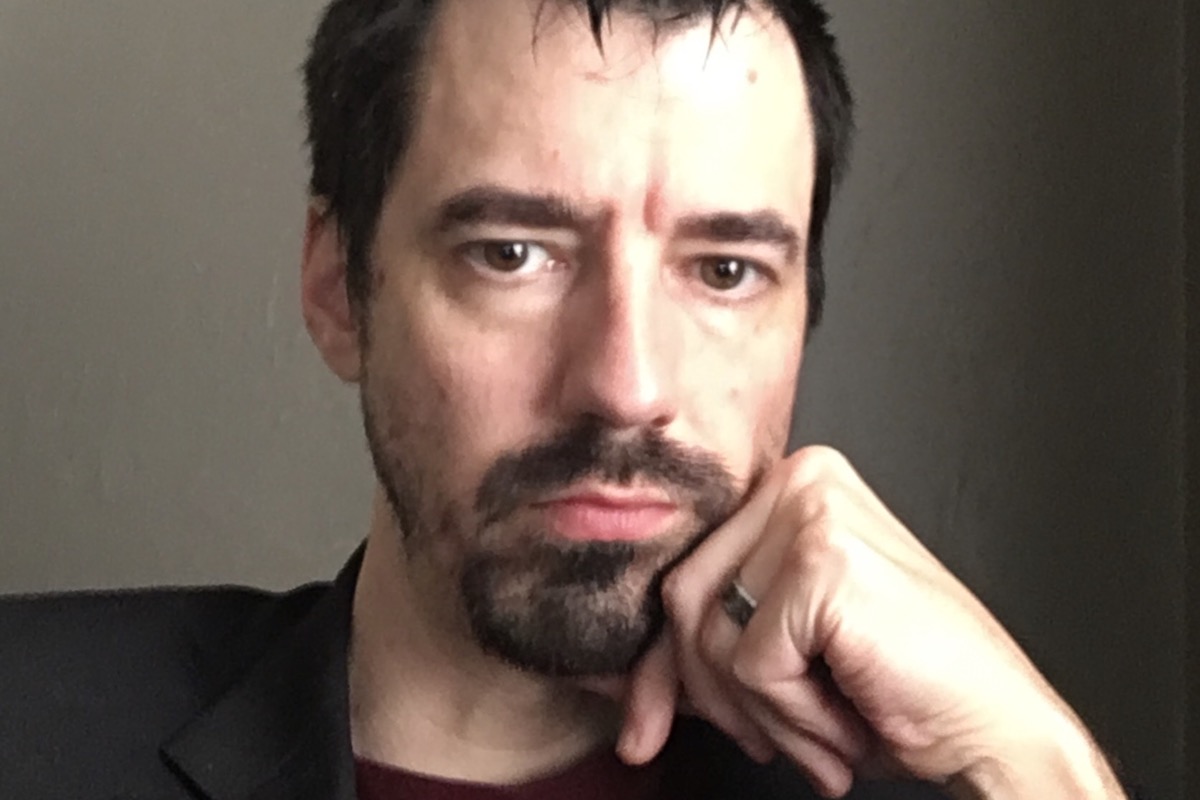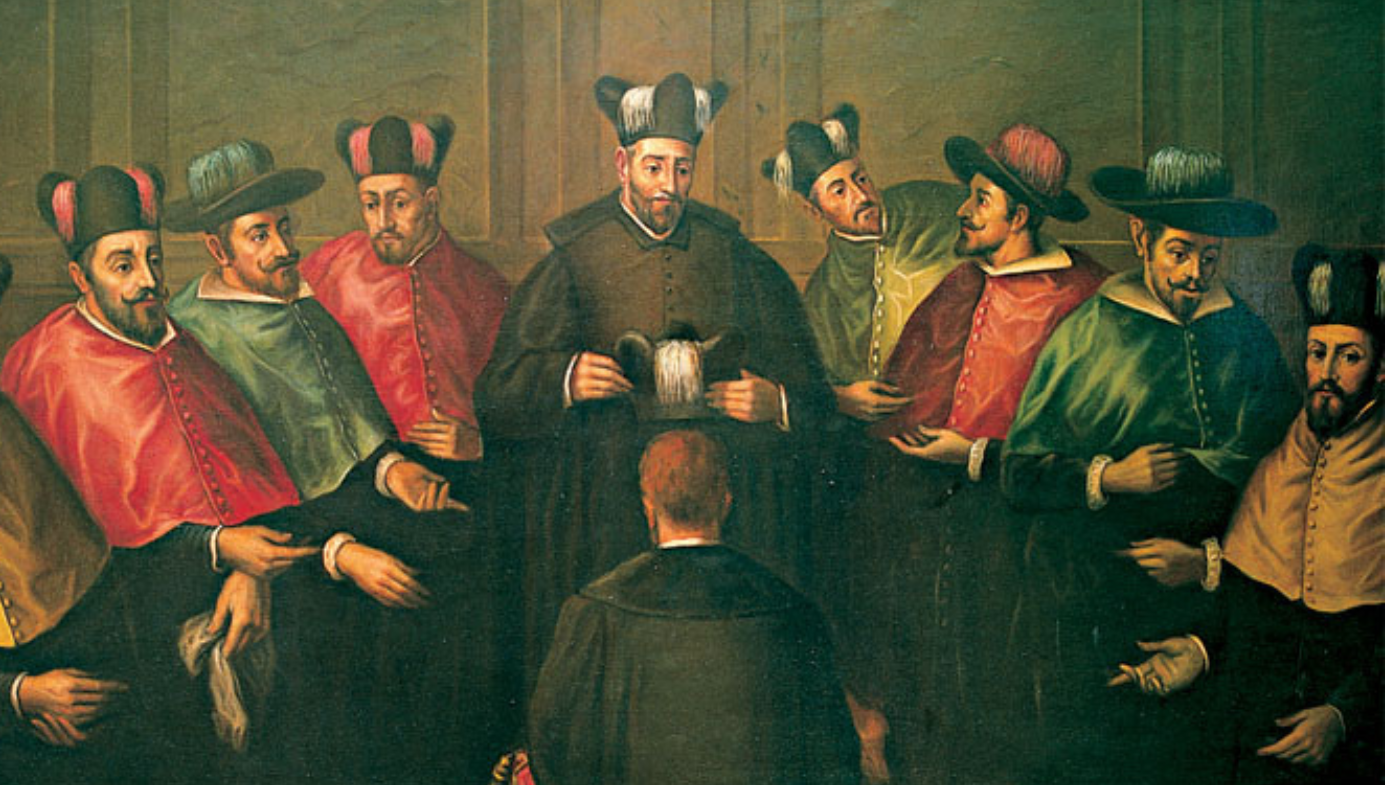Education
I've Been Fired. If You Value Academic Freedom, That Should Worry You
I did not enjoy the protection of tenure (I was, however, tenure-track), but we should not rely upon tenure to uphold free inquiry.

Orthodoxy whether of the right or of the left is the graveyard of creativity.
~Chinua Achebe
Until a week ago, I was a tenure-track assistant professor at a small college. Then I was fired. And although I am but one professor at one small college in one small town, I want to persuade you that, if you care about free speech and free inquiry in academia, you should be alarmed by my termination. My troubles began in October 2019 when I was invited to address an evolutionary group at the University of Alabama. I had decided that I would discuss human population variation, the hypothesis that human biological differences are at least partially produced by different environments selecting for different physical and psychological traits in their populations over time. I planned to defend this view as most consistent with a Darwinian understanding of the world.

My first day in Tuscaloosa was uneventful. On the second day, I visited a class and had an enjoyable discussion with students about various topics, including human evolution and social signaling. I was then supposed to meet professors and students for lunch, but instead my guide delivered me to an empty room where I received a number of texts from my host: The professors had found my RationalWiki entry, which accuses me—inter alia—of writing “racist bullshit for the right-wing online magazine Quillette.”
Notwithstanding its name, which indicates a commitment to thought and reason, RationalWiki is a highly partisan and tendentious site which its authors use to mock and defame their political opponents. (They have also refused to update misinformation about my work and views even after I have written corrections.) Which is to say that it is not a reliable source of information about anything, still less a sound basis upon which to judge a person’s character. Professors routinely warn their students not to cite Wikipedia, but the lies and misrepresentations on my RationalWiki page were thought to be so unanswerable that the faculty who read them refused to meet with me so I could speak in my own defense. (A handful of other curious professors did extend me the courtesy of a meeting, and we enjoyed a perfectly civil chat.)
I assumed that my scheduled talk would be cancelled, but it was not. I thought the room would be empty, but it was not. Word had evidently spread and a number of angry students were in attendance. The atmosphere was hostile, and the audience was eager to challenge me, but I was able to deliver my talk as planned. The Q and A that followed was quite rowdy, however—one of the students yelled that I was a racist and someone else accused me of promoting the long-discredited pseudoscience of phrenology. And so on. It was not an especially cordial or constructive exchange of ideas.
Shortly after my talk, the student newspaper published a clearly slanted article about the event that casually quoted anonymous criticism that my work “resembles the pseudoscience employed by eugenicists.” This criticism was completely irrelevant to my talk, in which I never discussed anything resembling “eugenics,” and was likely included to poison the study of human biological variation by associating it with other unsavory intellectual traditions. The group that invited me to speak also issued an unconditional apology to attendees of my talk and vowed to do better. My lecture, they explained, was “non-scientific” (it formed the basis for an article that passed three reviewers at a professional psychology journal) and they had been unaware of what I planned to say (I had provided them with an outline of my talk at least two months in advance, which they had approved). And as soon as controversy arose, they denounced me and my expressed views (most of which are undisputed in the relevant literature), and explained that the invitation they had extended had been a mistake.
When the newspaper article was emailed by persons unknown to my university’s provost and president, I was called for a meeting. They were not terribly pleased, but the meeting was uneventful and I was told to be more strategic in my navigation of such a sensitive topic. I agreed that I would try. A few months later, however, someone using a pseudonym began emailing my provost, my president, and my entire department (but not me) links to my articles (including those written for this outlet) and screenshots of “offensive” tweets. My anonymous accuser held me to be guilty of all kinds of treachery and threatened to inform the board of trustees of my sins.
One of these tweets was only up for an hour before I deleted it and posted another clarifying my meaning. It had read: “The greatest challenge to affluent societies is dealing openly, honestly, and humanely with biological (genetic) inequality. If we don’t meet this challenge, I suspect our countries will be torn apart from the inside like a tree destroyed by parasites.” My tweet was not about groups, but rather about individual genetic differences, and the need to create a humane society for everyone, not just for the cognitive elite and hyper-educated (a theme I discuss often). The simile about parasites was a reference to political conflict and not a reference to some group of humans or another. (A fair-minded examination of my Twitter history, which comprises more than 30,000 tweets, will reveal that I have never said anything divisive about human groups. And I have always argued that people should be treated as individuals not as representatives of a demographic.)
In any case, this episode earned me another meeting with my bosses. I am not able to divulge all the details of what followed, but this meeting was rather less congenial than the last. They expressed disappointment in me and particular dismay about the tweet I had deleted, which they said evoked anti-black and antisemitic tropes. I repeatedly agreed that it had been carelessly worded and did not convey what I meant. I pointed out that I had deleted it shortly after posting it and issued a clarification. I also explained that I value free speech and free inquiry and that I would continue to pursue potentially controversial topics. Finally, I warned them that an article I had co-authored on human variation would soon appear in a respected peer-reviewed journal.
As fraught as that meeting was, the possibility of my termination never came up. Again, they beseeched me to be more strategic. Again, I agreed. By the time the meeting was over, I had managed to convince myself that everything had been straightened out and that I had come to an understanding with my superiors. I concerned myself with fretting about how my new paper about human variation would be received when it was finally published online. As it turned out, the article provoked a minor fuss on Twitter, but nothing that caused any noticeable concern at work. I was enormously relieved. My colleagues and I had managed to write about human population variation and the world hadn’t come to an end.
A few days later, however, my boss informed me, without any warning, that the college was not renewing my contract—in other words, they were firing me. I don’t know if my paper was the proximate cause of my firing, but in the light of the foregoing weeks’ tumult, it was plausibly the last straw. Nevertheless, I was nonplussed. Fired? I had worried vaguely about such an eventuality, but didn’t really think it would happen. I naively assumed that the norms of academic freedom would prevail. They did not.
My situation might strike you as trivial and insignificant. And, indeed, I am insignificant. But my firing is not. I did not enjoy the protection of tenure (I was, however, tenure-track), but we should not rely upon tenure to uphold free inquiry. Academic health is not served by a message that tenure can only be secured by those prepared to embrace political orthodoxies. After all, if tenure is intended to protect people who challenge dogmas and orthodoxies, why would we support a system that punishes non-conformists and that sieves them out before they are capable of safely challenging prevailing views?

Many people disagree with my views about human population variation, about conservativism, about immigration, about economics, indeed about almost everything. That is just part of living in a liberal democracy. Disagreement is what powers intellectual progress, and without it neither the political process nor the scientific method can function. But unless we can agree on the foundational value of academic freedom, all scholars will become vulnerable to ideologically motivated punishment. Science, the great intellectual achievement of civilization, will become the servant of politics.
I followed all of the protocols of academia. I published articles in peer-reviewed journals. I shared my ideas, always politely, on Twitter, and I encouraged people to debate me and to criticize my ideas. And I was fired. If it can happen to me, then it can happen to any academic who challenges the prevailing views of their discipline. You may disagree with everything I believe, say, and write, but it is in everyone’s interests that you support my freedom to believe, say, and write it.






